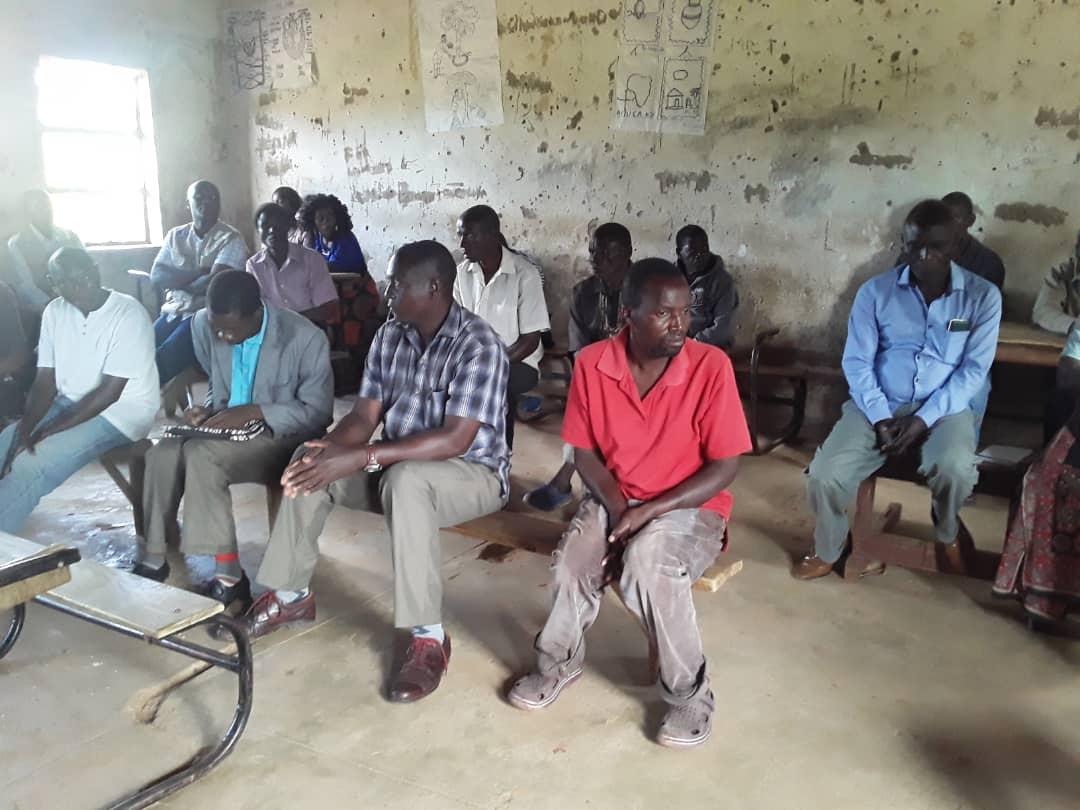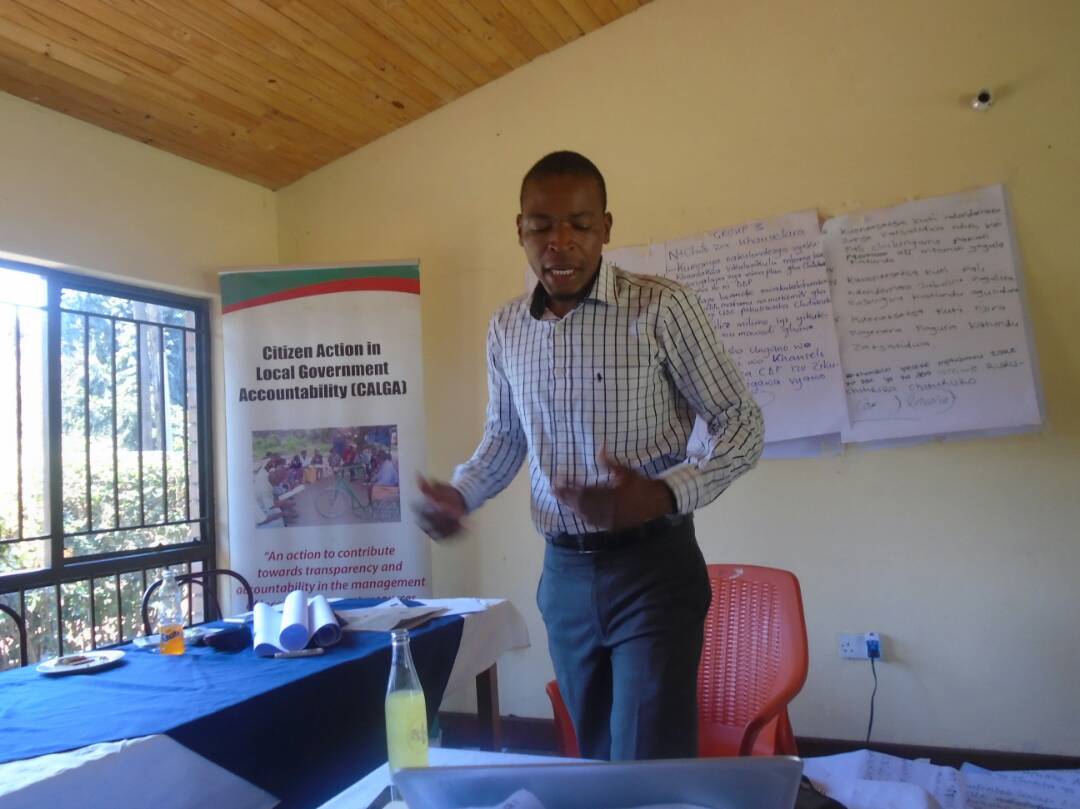“COMMUNITY BYLAWS: ASSISTING VILLAGE DEVELOPMENT COMMITTEES IN THE FIGHT AGAINST CHILD TRAFFICKING”

“We were surprised to notice that our 16 year old daughter CR (not her real name) was not present in our household” says BR (not real name). We then started searching for her in our community that’s when we found out that she had left for Tanzania. CR’s story is one of many in the bordering districts of Malawi and Tanzania where young girls and boys are trafficked to Tanzania to work in households, shops and restaurants among others.
CR says, “I travelled to Tanzania in the beginning of 2024 after being enticed by an individual from our community that I would find a good job and would make a lot of money and I left without informing my parents. In Tunduma (Tanzania), I started work as a house-help and was not alone in the compound, there were two other underage girls with whom I used to work with”.
BR says that after finding out that she had left for Tanzania, they decided to alert the Village Development Committee (VDC) and Catholic Commission for Justice and Peace (CCJP) volunteer ES(not real name) who then informed CCJP officer Moses Mwakisalu.
“As a VDC, we have a set of bylaws to curb child trafficking, child labour, early marriages and school dropout as were were previously encountering such problems and we were trained by CCJP on minute documentation and setting of bylaws at community level. After the training we started to sensitize the community on the bylaws we had set for the community and it was then that BR reported to us that his child CR had been trafficked to Tunduma for work”, says ES who is a CCJP volunteer.
“CCJP Officer Mwakisalu then guided us on the steps we were supposed to take and we got the phone number of the person who had taken her to Tunduma and requested that she be sent back to Malawi” says BR. He however went on to state that even though the girls are trafficked to Tanzania with the idea that they will be working in households and shops, there are rumors that a lot more than the eye sees goes on and the girls are forced to engage in promiscuous activities when they arrive in Tanzania.
CCJP officer Mwakisalu states that the problem of child trafficking is a big issue along the borderline as most of the children that are trafficked are underage and are deceived with opportunities of making a lot of money across the border. “We are making progress as the community is now following the bylaws that are set and parents are able to report when a child is suspected of being trafficked however there is need for more sensitization along the borderline on issues of child trafficking”, says Mwakisalu.
“PUBLIC EXPENDITURE TRACKING (PET): A PATH TO TRANSPARENCY AND ACCOUNTABILITY”
The Catholic Commission for Justice and Peace (CCJP) Karonga diocese conducted a Public Expenditure Tracking sensitization session on 9th May 2024 at Kangindwa Primary School on how to improve transparency and accountability in the management of School Improvement Grants (SIG) and School Development Funds.
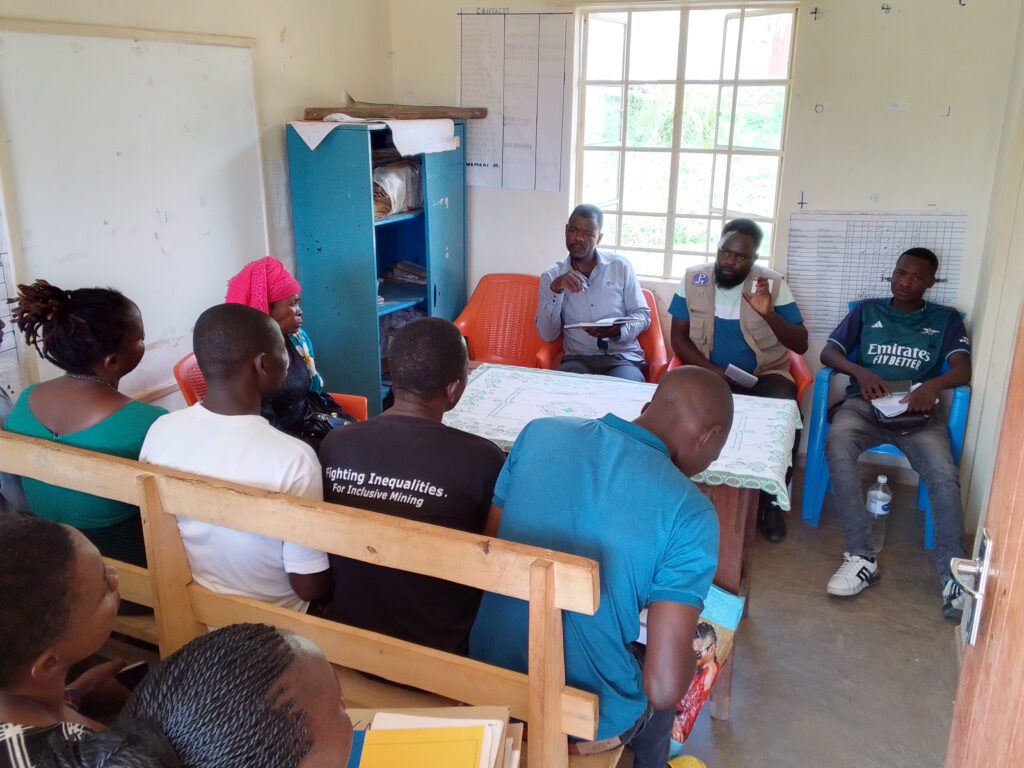
The session was attended by Group Village Head Mwandenga, Kangindwa Parent Teachers Association representatives, the School Management Committees, Public Expenditure Tracking committee members and CCJP officers. During the session, there was a review of the schools financing and procurement processes in the form of a Question and Answer session by CCJP officers in order to get a clear picture of the transparency and accountability measures that are in place.
During the session, it was discovered that the school has set financing and procurement procedures in place that promote accountability however there is a problem of access to information on the financing and procurement processes which affects transparency. It was also discovered that in the school of 1,643 students, only 780 students paid the required MK1,000 for School Development Fund which hinders development.
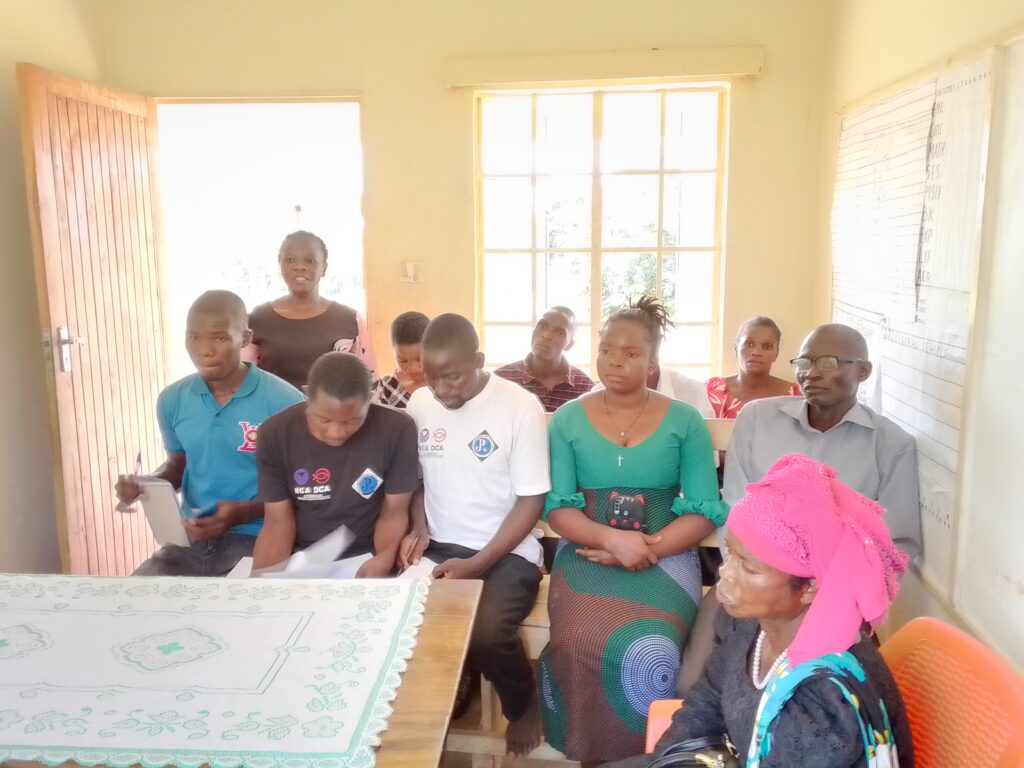
“The session we had today is very beneficial as it will assist us as a committee to be more transparent and accountable if we follow all that we have been taught and we will also teach our friends in the community on benefits of contributing to the School Development Fund and also how to track our incomes and expenditure” said Steven Simfukwe who is the School Management Committee Chairperson for Kangindwa.
CCJP officer Moses Mwakisalu acknowledged that there is a great improvement at Kangindwa but highlighted that there is a great challenge of late disbursement of the School Improvement Grant which affects the learning process at the school and encouraged the School Management Committee, Parents Teachers Association and the community to work together in-order to improve transparency and accountability.
A simmilar session was conducted at Uliwa with Wasambo Community Action Group and Wasambo Public Expenditure Tracking Committee Members on 8th May 2024. The Public Expenditure Tracking (PET) is an initiative under the Fighting Inequalities Project which CCJP Karonga Diocese is implementing with support from Norwegian Church Aid and DanChurch Aid Joint Country Programme.
“EMPOWERING WOMEN: COMMUNITY DEVELOPMENT AND GENDER EQUALITY IN ILEMA”
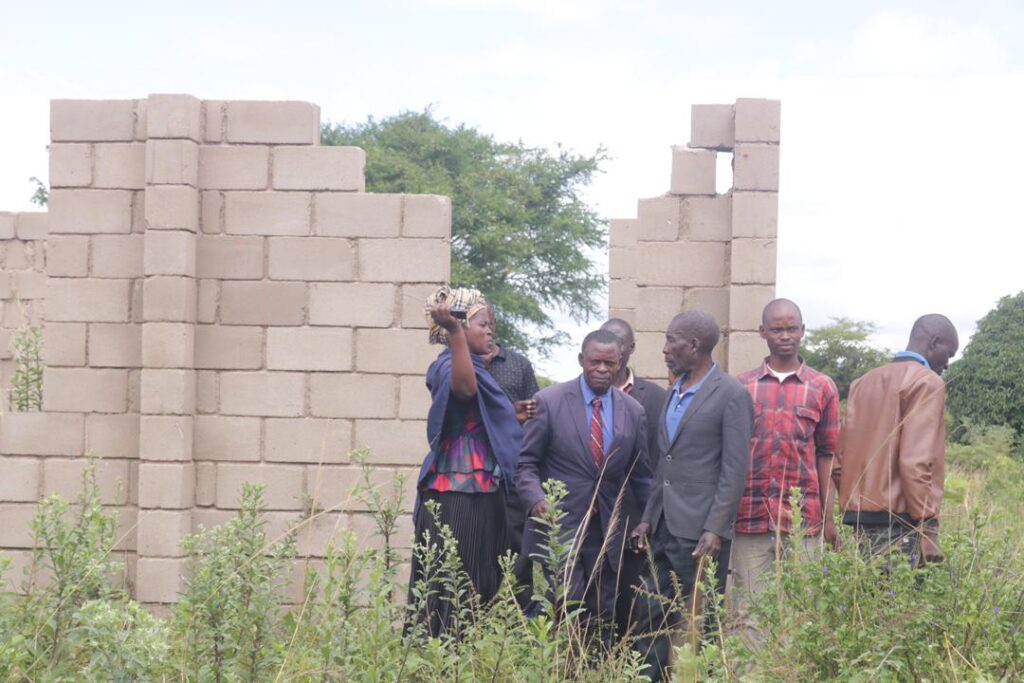
“My role as VDC chair has been made easy by the support of my fellow women and the introduction of the Gender and Sensibilization Project by CCJP. We have made progress as we are currently implementing several community development projects under my leadership such as the construction of a clinic and nursery schools here in Ilema to reduce the distances women and children travel to access healthcare and education services”, says Jesse Kilembe who is the chairperson for Ilema VDC.
Under Jesse’s leadership, Ilema VDC is also constructing an Agricultural Development and Marketing Corporation warehouse together with neighbouring Mubanga VDC to deal with the problem of travelling long distances to Lufita to access ADMARC services. “The funds used for all the developmental activities are sourced from the community and as a committee, we make decisions on what developments to make within our community”, says Jesse.
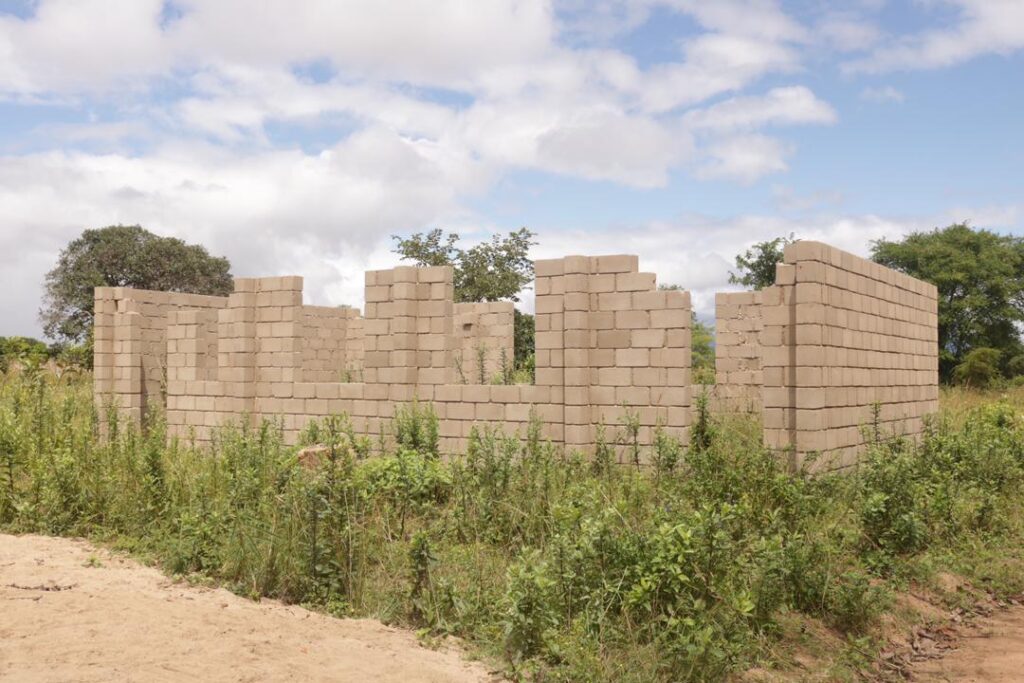
“There is a huge difference in the way things are being done in the community if we compare between the times we had a male chairperson and now when we have a female Village Development Committee chairperson”, says Yasaba N’gambi who is Group Village Head Chiwelewele and also serves as the patron for Ilema Village Development Committee.
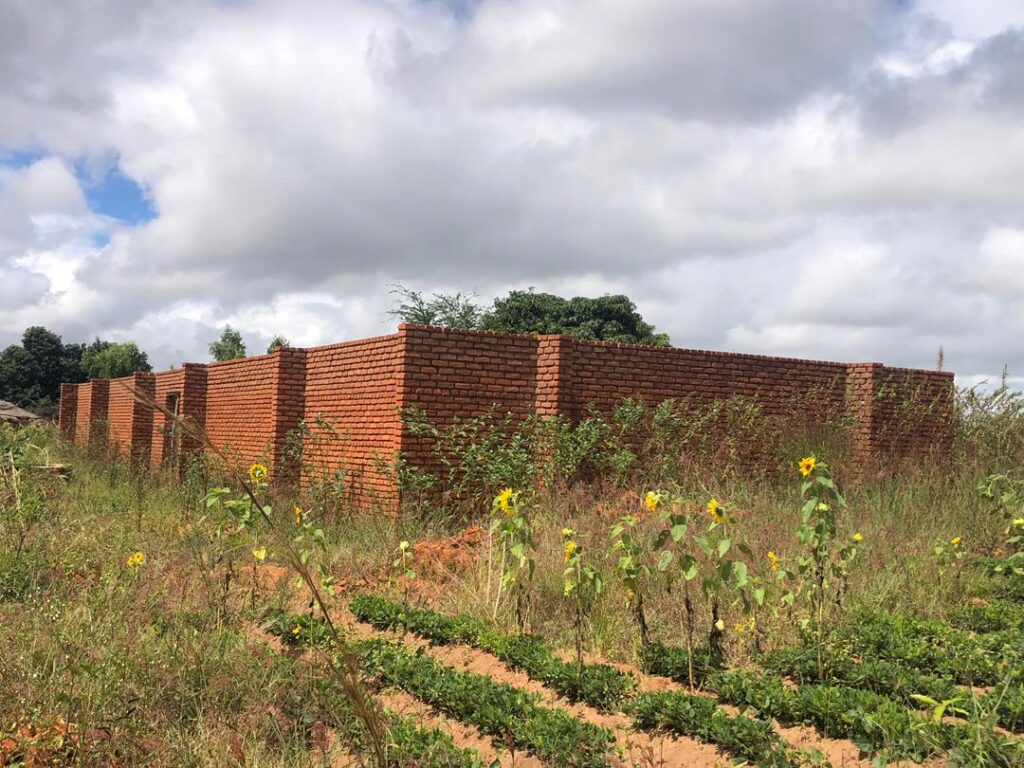
“Women are more transparent in their dealings and have the best interests of the community at heart and as a result of this, our families and community has seen a great improvement since the implementation of this project. We are encouraging active participation of women in our community projects” GVH Chiwelewele further states.
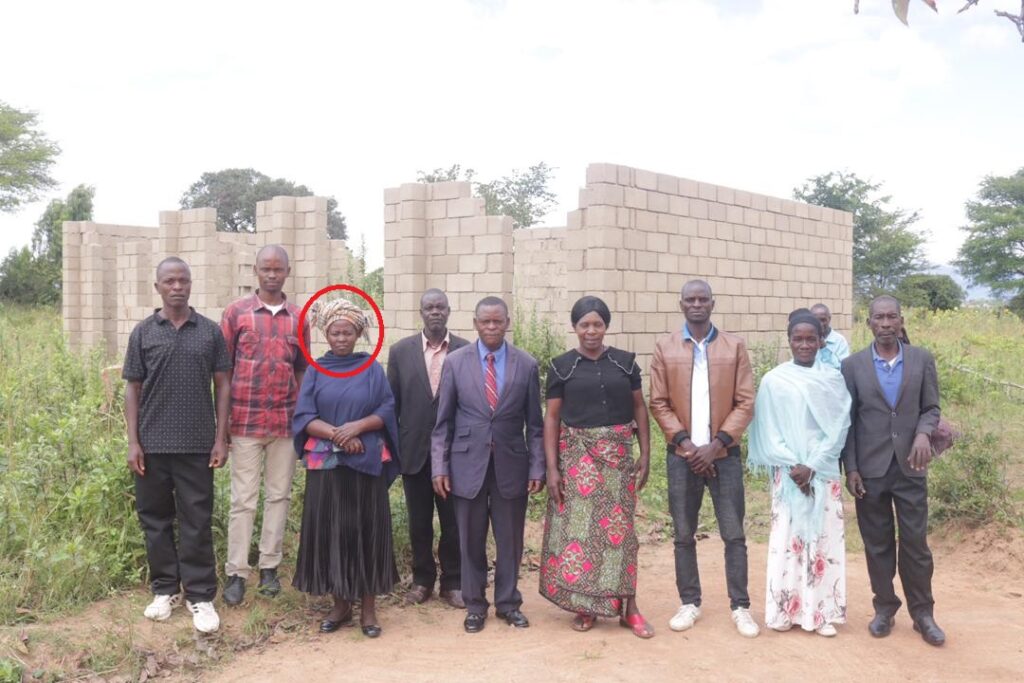
Ilema Village Development Committee as a whole is a participant in the Gender Sensibilisation and Safeguarding Project which Catholic Commission for Justice and Peace Karonga Diocese Desk is carrying out in Chitipa District since 2022 with support from MISEREOR and the Diocese of Munster in Germany of which one of the goals is to increase participatory decision making between men and women at both household and community level.
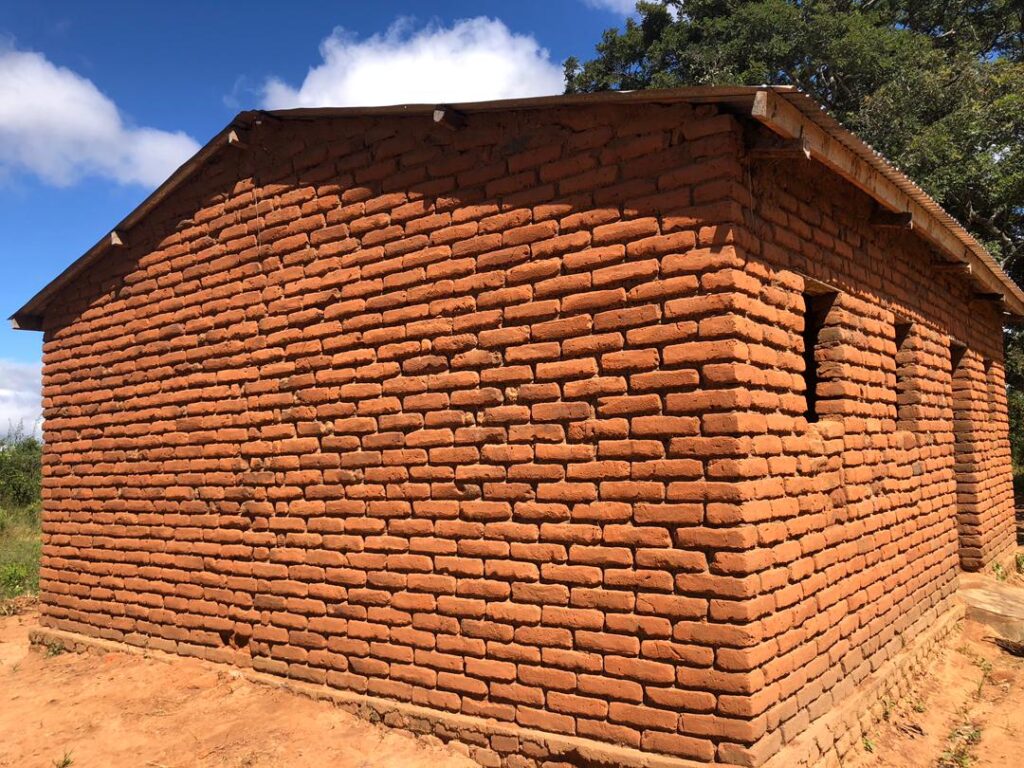
The story of Ilema VDC serves as an inspiring example of how empowering women in leadership positions can lead to meaningful progress. Through community-driven initiatives and a commitment to gender equality, Jesse Kilembe and the Ilema VDC are shaping a brighter future for their community.
KARONGA DIOCESE CCJP TRAINS IT’S MONITORS AHEAD OF LOCAL GOVERNMENT BY-ELECTIONS
In the heart of democracy lies the power of choice and ensuring that democracy maintains its purpose is a task of paramount importance. On Friday 22 March, the Catholic Commission for Justice and Peace (CCJP) organized a training session at St. Mary’s parish hall aimed at fortifying the integrity of the electoral process.
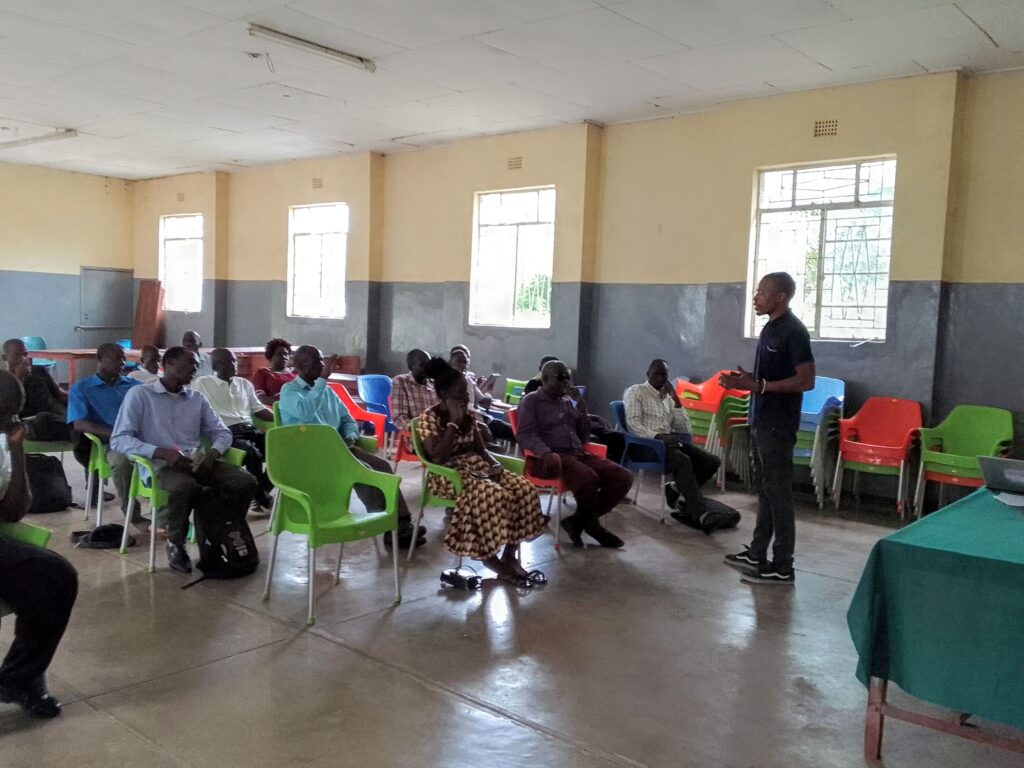
The Vicar General of the Karonga Diocese Monsignor Lorent Dziko was also present at the session and advised the participants stating that “there is need for the CCJP monitors to be non-partisan as the church herself is also non-partisan to ensure that the electoral process is free and fair”. He also advised them to perform only those duties that they are supposed to perform and not do things that they are not assigned.
During the training, participants were equipped with the knowledge and skills necessary to perform their duties effectively and they were taught the proper methodology of observation. The session also involved trainings that are meant to prepare the monitors for real-life scenarios they might encounter.
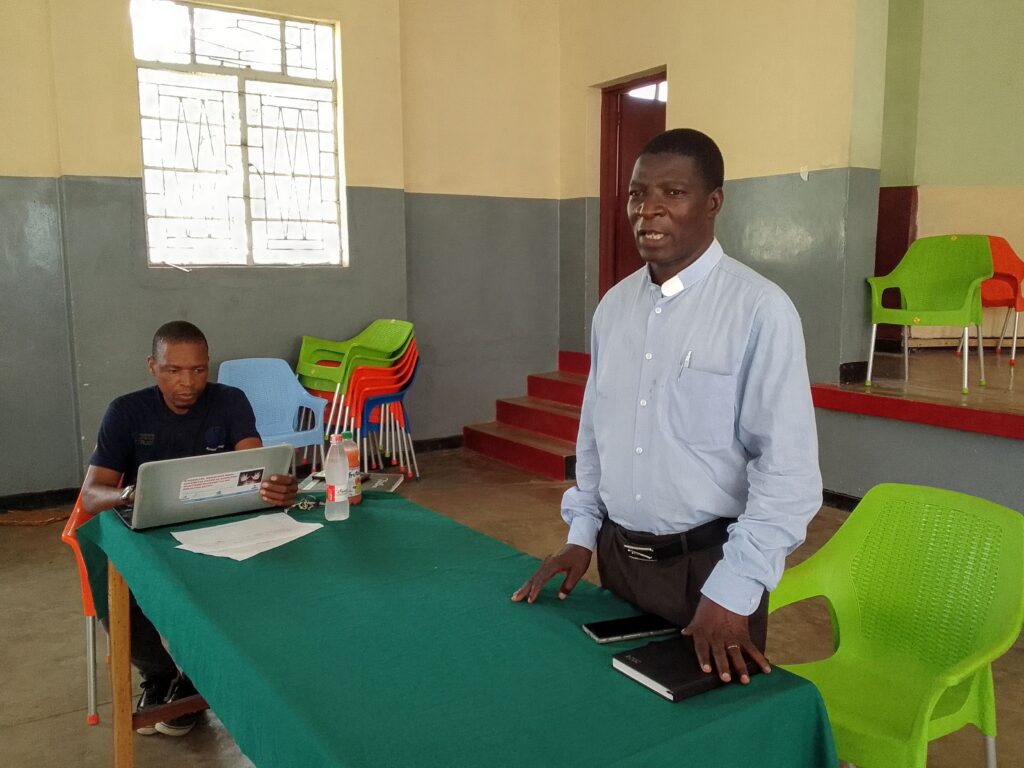
One of the participants Teresa Chisenga applauded the training saying that, “it is beneficial to us as we have learnt how to be good observers and also how we can interact with other stakeholders of the electoral process”.
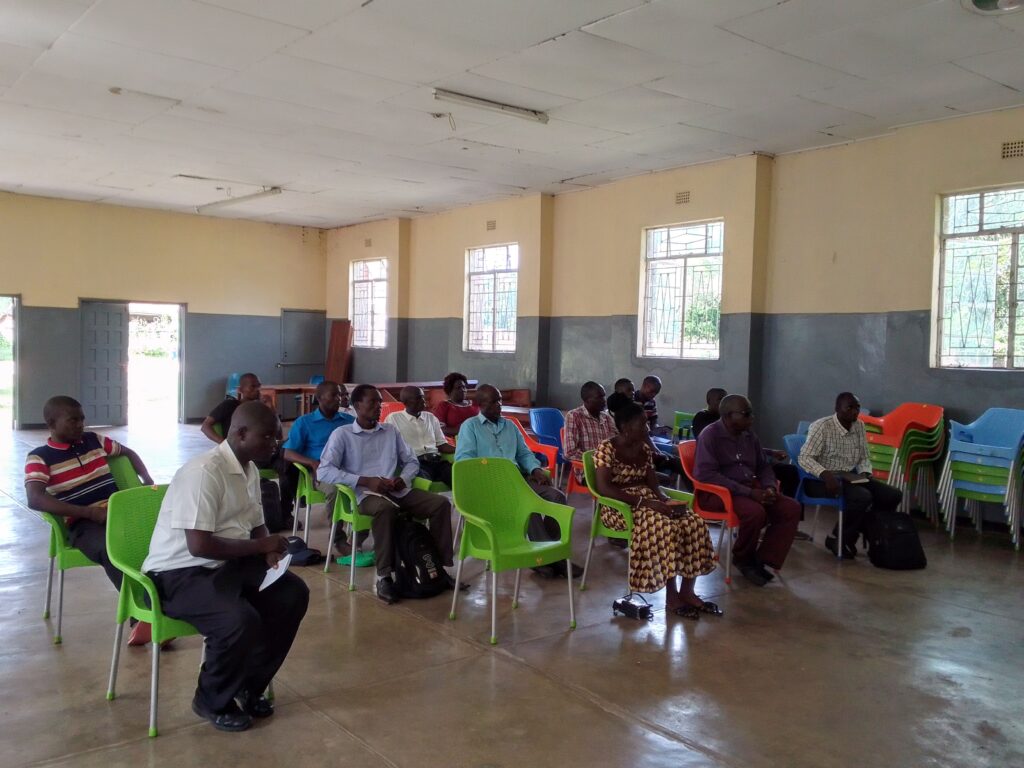
CCJP is deploying 44 observers in 44 Polling Centers for Tuesday 26 March Local Government by-elections in Karonga district. These by-elections are taking place in Kaporo, Chilanga and Rukuru wards and these wards were declared vacant in September 2023 after councilors from these wards were convicted.
By Noel Chatepa
PET conducted at Hara Maternity wing
By Lestina Sanga
‘Public resources need to be well accounted for’, Mr Msukwa, the Karonga District Council Finance Committee Chairperson. This was stated in his speech during Public Expenditure Tracking (PET) dissemination for the Construction of Hara maternity wing at Chankholombe School.
the PET dissemination was organised by the Justice and Peace Desk of Karonga Diocese under the Project OSISA Health Governance. under this project, the Desk has managed to empower community members to following up on expenditures as well as projects done using resources from public funding baskets. the desk has volunteers known as the Public Expenditure Tracking (PET) Focal Team, who spearhead the tracking system and empower others. the purpose of the PET process is to ensure that there is transparency and accountability in the management of funds in the Health Sector.
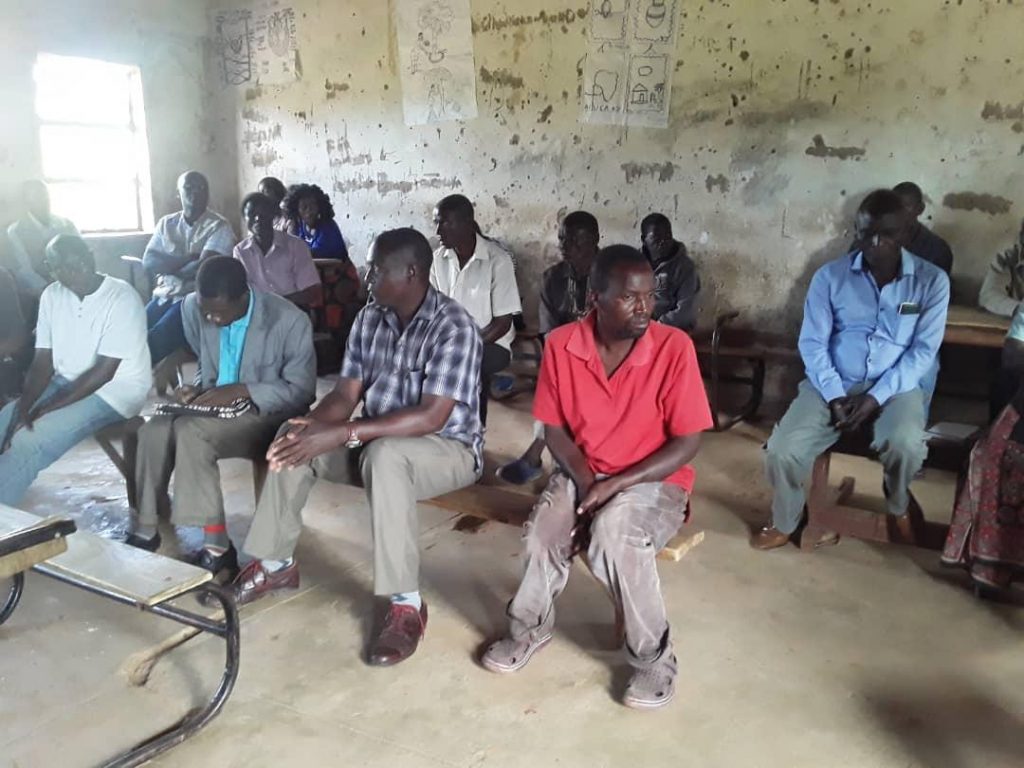
Hara Maternity Wing was constructed using Community Managed Social Economic Fund. By design is the project under the fund is supposed to be managed by the community members, who receive training and technical guidance from the district councils relevant officers. However, Hara Maternity wing was constructed with no monitoring and supervision from the Council, the committees chosen did not have enough training, which affected the management of the contract with the Contractor and procurement of building materials problematic.
From the PET conducted, an amount of about MK 65,000 was misappropriated, including other already procured materials. It was also revealed by the Project Implementation team that MK 500,000 was taken forcefully by the contractor.
On way forward it was recommended that there should be New Project Management team to continue the project when funds are mobilized, the one present was doubled as the Health Center Management Committee and Project Implementation Team. so the project lacked local oversight and monitoring.
CAG Members Reveal Gaps in the Implementation of Development Projects
By Vincent Bwinga
Community Action Group (CAG) members from Lupembe and Mbande ADC have expressed concern that guidelines for development projects under Constituency Development Fund, District Development Fund, and Local Development Funds are not being followed in the implementation of projects.

Speaking during the orientation workshop at Club Marina in Karonga, on 11 September 2018, Gilbert Msukwa said they were amazed why implementers of local development projects choose not to follow the guidelines which are very clear.
He cited CDF guidelines which demand for members of parliament to engage Area Development Committees (ADCs) and councilors, in identification of projects with reference to the District Development Plan, which is not the case in his area.
“Projects are implemented without project implementation committees (PICs) and funds are being managed as personal funds. This is a direct contrast to what is outlined in the guidelines,” said Msukwa.
Also commenting during the workshop, Mercy Ndovie said the district council gets 5% from funds allocated to District Development Funds for monitoring among others but projects are not being visited. She questioned how the 5% money is being spent.
“DDF projects are not being supervised which leads to poor quality and others remain incomplete for years,” said Mercy Ndovie.
Community Action Group members hailed the Justice and Peace Desk of Karonga Diocese for coming up with Citizen Action in Local Government Accountability (CALGA) project which they said has equipped them on how they can monitor and track public resources.
CAG members promised to intensify community awareness on local development resources guidelines and demand for transparency and accountability where necessary.
CALGA project is being implemented by the Justice and Peace Desk of Karonga Diocese in Karonga and Chitipa districts with funding from Irish Government through Danish Church Aid.
Justice and Peace Desk Prepares Female Aspirants for 2019 Elections
By Elliness Mbowe and Vincent Bwinga
The Justice and Peace Desk of Karonga Diocese on 31st August, 2018 conducted a training workshop for women aspirants from different political parties and independent candidate in Karonga District in preparation for 2019 tripartite elections.

The training sought to increase women’s chances of winning in the forthcoming elections against the background of poor representation of women in political positions. For instance, Karonga District has only one female councillor out of 10 ward councilors. There is also no female Member of Parliament in the area under Karonga Diocese.
This state of affairs has been attributed to women’s limited understanding of political tactics, intricacies of political parties they represent. Despite the Gender Equality Act and other instruments, there is lack of deliberate measures by government or political parties to promote the participation of women in politics.

The training, therefore, focused on assisting women aspirants on mobilizing resources for campaign, effective campaign strategies, presentation skills, self-marketing during campaign. The women were also assisted to understand the electoral cycle of the country.
This instilled confidence, and self-reliance among women as they are approaching campaign period for 2019 May tripartite elections.
Speaking during the training, Tamala Mujilembe from Khwaba Ward who is representing DEPECO said the training has motivated them to continue with an idea of representing their wards at the council.
“We are being discouraged by men in our villages that we can’t represent them. With this training we are motivated and empowered that we are all equal. We are not going to be discouraged by all insults. We will remain focused until we achieve our goal,” Said Tamala.
Tamala Mujilembe further commended Justice and Peace Desk of the Diocese of Karonga for the training which was organized with funding from UN Women under the Malawi Electoral Cycle Support project. She expressed optimism that they will succeed in the forthcoming elections.
The women aspirants bemoaned the handout syndrome, which is deeply rooted in their communities, as a big threat for them to succeed in the upcoming elections. They have since requested more support from the Justice and Peace Desk for them to withstand the pressure of elections.
Fifteen out of twenty one women aspirants scouted attended the training. Twenty are aspiring councilors while one is vying for the seat of Member of Parliament for Nyungwe Constituency. These women were scouted from Area Development Committees, political parties, chiefs and women meetings.
Karonga CSOs to Advocate for the Adoption of FPIC Policy
By Vincent Bwinga (Justice and Peace)
Civil Society Organizations in Karonga have expressed their commitment to advocate for an enabling domestic policy and legal framework that will see the enforcement and adoption of Free Prior and Informed Consent (FPIC) policy for community rights in Extractive Industries.
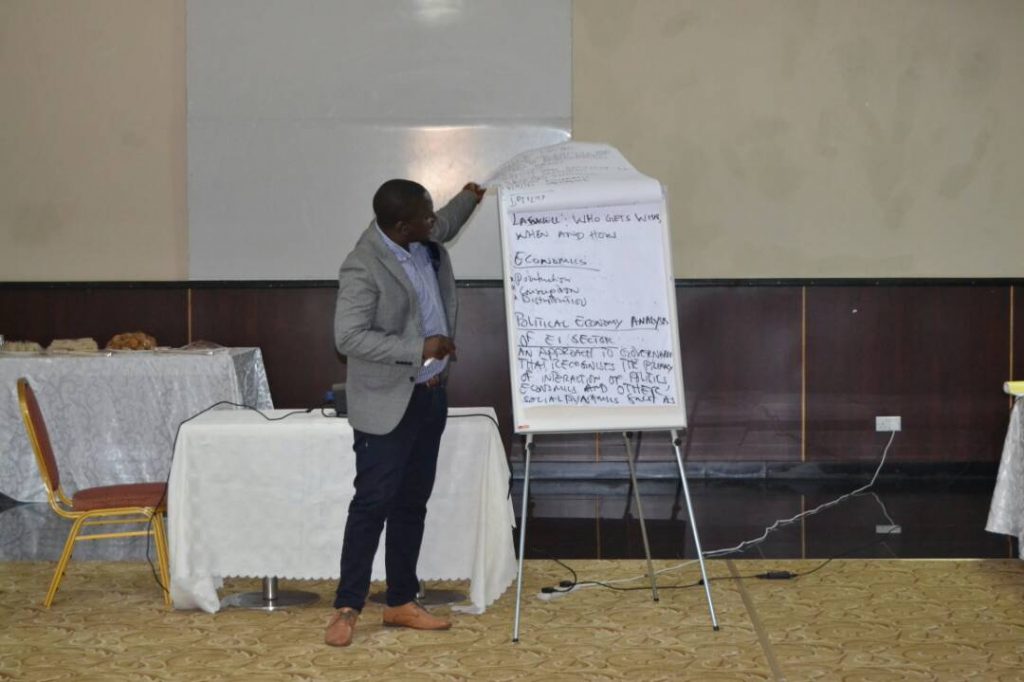
The CSOs made this commitment during a three day long training organized by the Justice and Peace Desk of the Diocese of Karonga at Beach Chamber in Karomga.
The training highlighted that lack of enabling domestic policy/ legal environment to enforce FPIC in Extractive Industries leaves communities at the mercy of investors in the sector. This gap gives investors freedom to disregard concerns of communities where they operate in. Communities are rarely engaged and as such community members do not benefit from the natural resources extracted from their own villages.
Further, the training stressed that the mining database is inaccessible putting transparency and accountability in the sector into question. For instance, there are over five active mining licenses and more than ten prospective licenses in Karonga but people do not have access to this information and are not engaged I decision making so that they also benefit from mining.
The CSOs, therefore, resolved to advocate for consolidated database of mining licenses and enabling domestic policy/ legal environment for enforcing FPIC through a position paper and other forums so that community members may also start benefiting from the sector.
Speaking during the training, Reverend Father Leslie Mtekateka said Civil Society Organizations in Karonga have spoken enough on Extractive Industries with little success as communities are yet to benefit from their natural resources.
Among other factors, he said this is because community members themselves say nothing in the midst of exploitative mining activities. Father Mtekateka, therefore, recommended more capacity building for traditional leaders and community members to demand meaningful engagement in decision making.
Fifteen Civil Society Organizations working in Karonga attended training. The training was coordinated by Justice and Peace of Karonga Diocese with financial support from Australian Aid through Oxfam in Malawi on “Inclusive and Transformative Extractive Industries in Southern Africa Project” which is being implemented in T/A Kyungu and Kilupla in Karonga.
Youth of Karonga and Chitipa Call for a Holistic Approach to Health Challenges
By Louis Nkhata
The Justice and Peace Desk of Karonga Diocese with the project coined “Promotion of High Quality, Accountable and Responsive Health Service Delivery” with funding from OSISA ( Open Society Initiative for Southern Africa) held a youth conference on 2nd June, 2018.
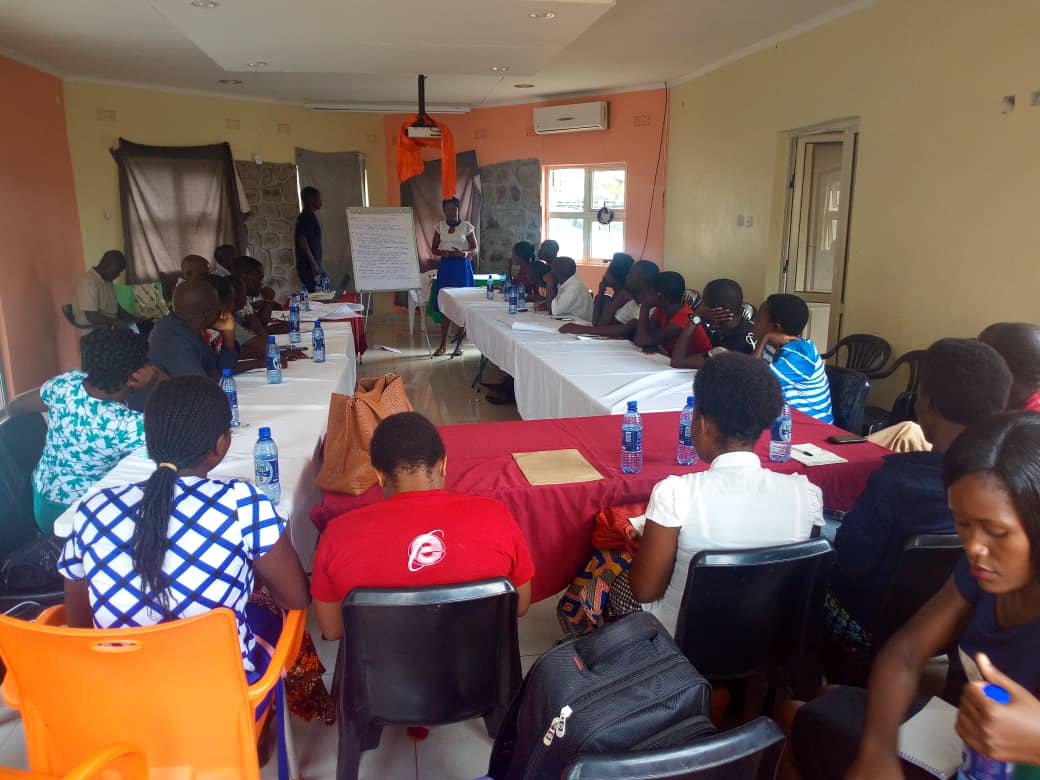
The youth conference came at a time when out of school youth have limited platforms to participate and contribute to improving public health service delivery. The youth conference was attended by youth from Karonga and Chitipa districts covering all 10 Traditional Authorities. The youth appreciated the services provided by the numerous health service providers. However, they had a few lamentations for the public health service delivery.
The youth made an observation that flow of information from health personnel and local development committees is slow and limited. The youth recalled that in most instances, they are not given the opportunity to hold leadership positions within development committees.
For instance, the youth observed that there is only one young person in both districts who is a Vice Chairperson for Health Facility Advisory Committee (HFAC) in Nthalire. When choosing HFAC, the youth are not given a chance to participate as such the youth always remain behind. The youth expressed that because they do not have representatives in such committees, their demands are not addressed and the linkage for information from development committees to the youth is weak. The issue becomes a problem as the youth do not have the right to information on public health service delivery. However, it was expressed by other concerned citizens that “even if the youth are deliberately put in the aforementioned committees the youth mostly become rubberstamping scapegoats”.
Limited capacity of health service providers in addressing issues particular to the youth has led to more of generic approach. In other words, “one size fits all” in treating every one despite varied social differences which means different health needs. The youth thought it wise for systems to be put in place to deliberately provide proactive and reactive services to particularly address their health problems. The youth demanded that if things were to improve, more youth should be capacitated in life skills to resolve their problems.
The youth demanded that the community should be made aware that representative democracy demands that each and every committee should reflect the demographic patterns of the communities as such the youth should be deliberately included to improve the flow of information which is a precondition for informed participation.
Further, there should be more efforts from the NGOs and the District Health Office (DHO) to build the capacity of health personnel and the youth to specifically address inadequacies accelerating youth problems within the public health service delivery. In addition, the youth demanded that the DHOs of Karonga and Chitipa should strengthen their disciplinary mechanisms so that those who do not adhere to their professional oath should be answerable.
Justice and Peace and CEPA Drill Journalists on Extractive Industries
By Vincent Bwinga (Justice and Peace)
The Justice and Peace Desk of the Diocese of Karonga and Centre for Environmental Policy Advocacy (CEPA), held a two-day training workshop aimed at increasing media participation in influencing accountability and transparency agenda.

During the training, journalists from media houses across Malawi were drilled to ably enquire, investigate, systematically cover and disclose extractive industries (EI) accountability and transparency issue in Malawi.
The training also strengthened current efforts, in the project being implemented, by the Justice and Peace Desk of Karonga Diocese and CEPA to engage the media as a way of enhancing public awareness on information relating to Extractive Industries to effectively gather stories relating to the same.
Speaking during the workshop, Justice and Peace Desk Officer, Louis Nkhata said the media has a key role to play in informing the public by providing an inclusive and critical platform for public dialogue and debate on EI. This he said could assist to disseminate information to most people in the country. He further encouraged journalists to be writing stories that can stimulate Malawians to demand participation and benefits from the extractive industries.
One of the participants, Adams Wundaninge of Zodiak Broadcasting Station, applauded Justice Peace Desk and CEPA for conducting the workshop. He indicated that the knowledge gained will assist them as journalists to be producing quality and evidence based reports.
He, however, requested the two organizations to keep on building capacity of journalist and engaging them in different forums of project activities so that they are always up to date on the status of the extractive industries.
Inclusive and Transformative Extractive Industries in Southern Africa project is implemented in Karonga by Justice and Peace Desk and in Phalombe by CEPA with financial support Oxfam in Malawi.

